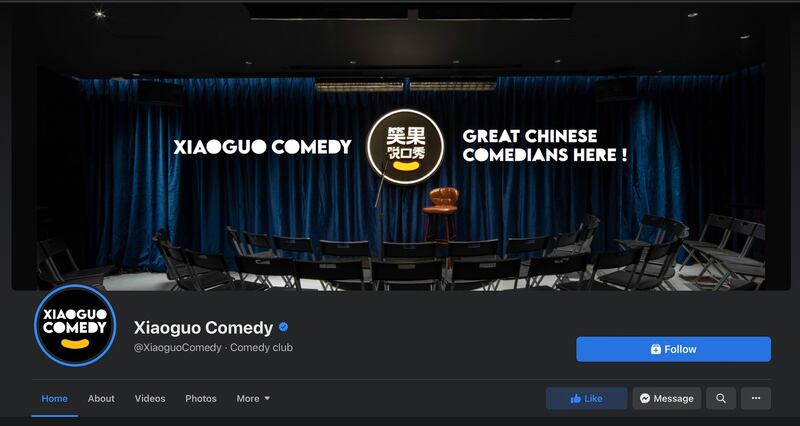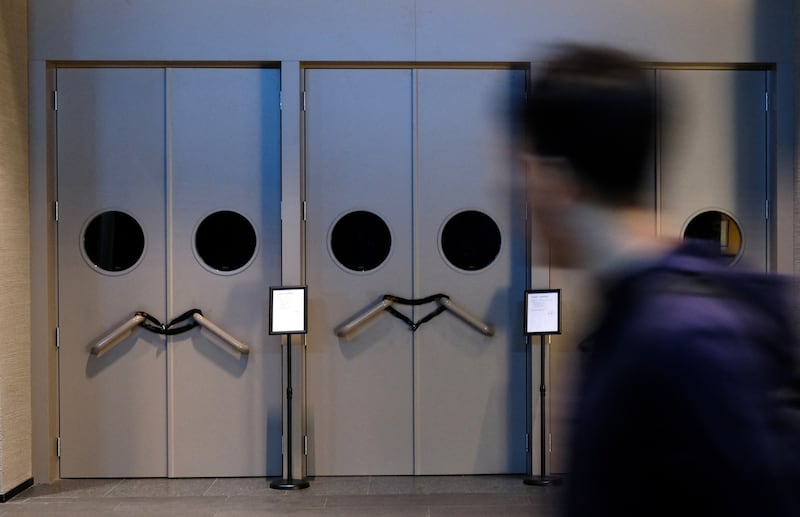Last month, Beijing police launched a criminal investigation into stand-up comedian Li Haoshi – who goes by the stage name House – after he sparked public ire with a joke that some said likened feral dogs to People's Liberation Army soldiers "capable of winning battles," prompting a nationwide wave of cancellations of other artists, particularly acts from overseas. In a recent commentary for RFA Mandarin, U.S.-based legal scholar Teng Biao says totalitarian regimes are the ultimate source of comedy material, and explains why the ruling Chinese Communist Party views comedy as an existential threat:
Tyranny is a major manufacturer of jokes, because autocracy itself is a joke. Those who hold power without winning an election need to rewrite history and whitewash reality, so as to maintain a perfect image of glory and greatness.
In 1966, the People's Daily reported on Mao Zedong's swim in the Yangtze River. It claimed the 73-year-old Mao had broken the world record, even after making deductions for the effects of the flowing river.
More recently, the Red Guards are back, the White Guards [COVID-19 enforcers] are here, and we have ongoing agricultural management and the conversion of forests to farmland.

When the population is 800 million, people are limited to one child per couple. When it reaches 1.4 billion, we can have three. What's that all about?
A diplomat who mouths off to the French media "doesn't represent the official view."
There's a real-name registration system for kitchen knives, and police are willing to travel to Thailand to kidnap a guy for publishing some gossipy books about Xi Jinping, whose portrait now hangs in temples and churches across the land.
Winnie the Pooh is banned, and Chairman Xi carried a 200-pound of wheat without even shifting to his other shoulder.
Anyone not laughing by this point?
Jokes dissolve tyranny. Comedy and autocracy are made for each other. Despotism has to hold itself up as pompous, serious, truthful, powerful, and inviolable.
And gods, emperors, wealth, 'truth', traditions and customs, science, traditional customs, are all grist for the mill of satire, for ridicule and spoofs.
Stand-up has been described as "the art of offense," but under a totalitarian regime, it is deadly.
Comrade George Orwell, who saw the underpants of the totalitarian system many years ago, said that every joke is a tiny revolution.
Late Chinese dissident and 2010 Nobel peace laureate Liu Xiaobo once wrote: "The political jokes people tell each other in private represent the conscience of the silent majority, and show us just how rotten are the foundations of post-totalitarian rule among the general public."
When we've all seen the emperor swaggering down the street stark naked, a burst of laughter is even more subversive than a child telling the truth.
A joke that doesn't pick quarrels or stir up trouble is hardly a joke at all.
That's why the censorship of jokes is never-ending under authoritarian regimes.

Stand-up comedy, sketches, comic duos and other kinds of comedy have almost totally lost their ability to offer political or social criticism under the Chinese Communist Party, because even social comment can become political.
So most comedians avoid them altogether, and limit their material to marriage, family, men and women or celebrities.
And they are increasingly punching down, targeting those weaker than themselves, with the poor, farming communities, manual laborers and the disabled the most common targets.
Ugly people, ethnic minorities, women, the elderly and black people are also discriminated against.
There are even sketches and comic duos who stick to the Communist Party's "main theme tune" and flatter the government, high-ranking officials, celebrities and the rich and powerful.
Under a dictatorship, the consequences of complaining about those in power are serious.
The Thought Police are ever watchful and are highly capable of winning battles.
Translated by Luisetta Mudie.
The views expressed here are Teng’s own and do not reflect the position of Radio Free Asia.
